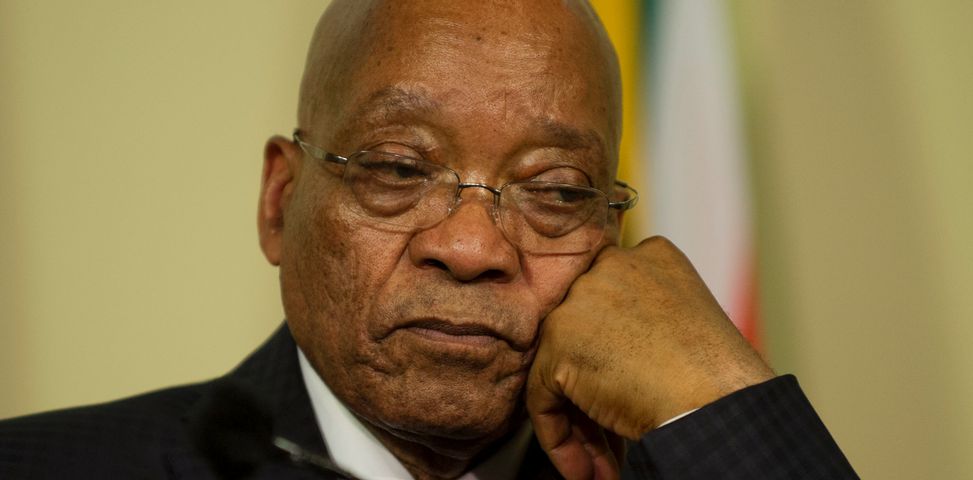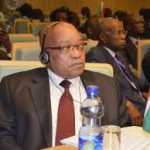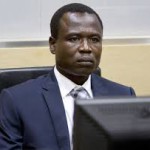South Africa’s Supreme Court of Appeal has ruled that President Jacob Zuma can face prosecution over almost 800 charges of corruption relating to a 1990s arms deal.
Zuma had lodged a challenge at the court in Bloemfontein after a lower court decided in 2016 to reinstate the charges that were previously discontinued by prosecutors.
“The reasons for discontinuing the prosecution given… do not bear scrutiny,” said Supreme Court judge Eric Leach who read the ruling.
Zuma said he was “disappointed” by the decision.
In a statement from his office, Zuma said he now expects the National Prosecuting Authority (NPA) to consider representations on the case before making the decision to prosecute him.
The statement did not spell out the representations.
Pressure on Zuma
Al Jazeera’s Tania Page, reporting from Bloemfontein, said the case piled further pressure on Zuma who is already facing several scandals.
“Zuma as deputy president was facing corruption charges that were controversially dropped by the then-head of the Prosecuting Authority. The reason he gave at the time was on the basis of secretly recorded phone conversations, which he said suggested political interference in the legal pursuit of then-Deputy President Jacob Zuma,” Page said.
“As a consequence, Zuma was then sacked by then-president Thabo Mbeki. So this has hung over Zuma for many years and has been pursued by the opposition alliance doggedly in court,” she added.
The opposition Democratic Alliance party had sought in 12 court appearances since 2009 to reactivate the charges over controversial post-apartheid military contracts which have dogged Zuma for much of his time in government.
The president, who is accused of corruption, fraud, money-laundering and racketeering, has always insisted he is innocent.
Zuma and other government officials were accused of taking kickbacks from the $5bn purchase of fighter jets, patrol boats and other arms manufactured by five European firms, including British military equipment maker BAE Systems and French company Thales.
Charges were first brought against Zuma in 2005 but dropped by prosecutors in 2009.
Steven Friedman, director of the Centre for the Study of Democracy at the University of Johannesburg, told Al Jazeera it was still unclear if Zuma would be charged as a result of the judgement.
“The impression is that he is going to be charged, but there certainly wasn’t an instruction to prosecute”.
Regarding Zuma’s future, Friedman said that it was now in the hands the ANC over the next three months to decide if they want to remove him.
Francis Antonie, director of Helen Suzman Foundation in Johannesburg, said the judgement was not unexpected but certainly welcome, adding that all eyes were now on the NPA to prosecute Zuma.
“If they don’t take it up, there is the strong likelihood of a private prosecution taking place. There are many organisations talking to each other about taking it up if the NPA fails to do so.”
Speaking to Al Jazeera, David Lewis, director of Corruption Watch, said that while the judgment was a big moment in the struggle to hold the president accountable, it was in no way the end of the road for Zuma.
“Zuma will do everything to avoid prosecution and to make a case for his side of the story.
The current head of the NPA (Shaun Abrahams) is as reluctant to prosecute Zuma as Zuma is reluctant to be prosecuted,” he said.
“It could be used as a way to get rid of Zuma, but whether it will happen is unclear.”








